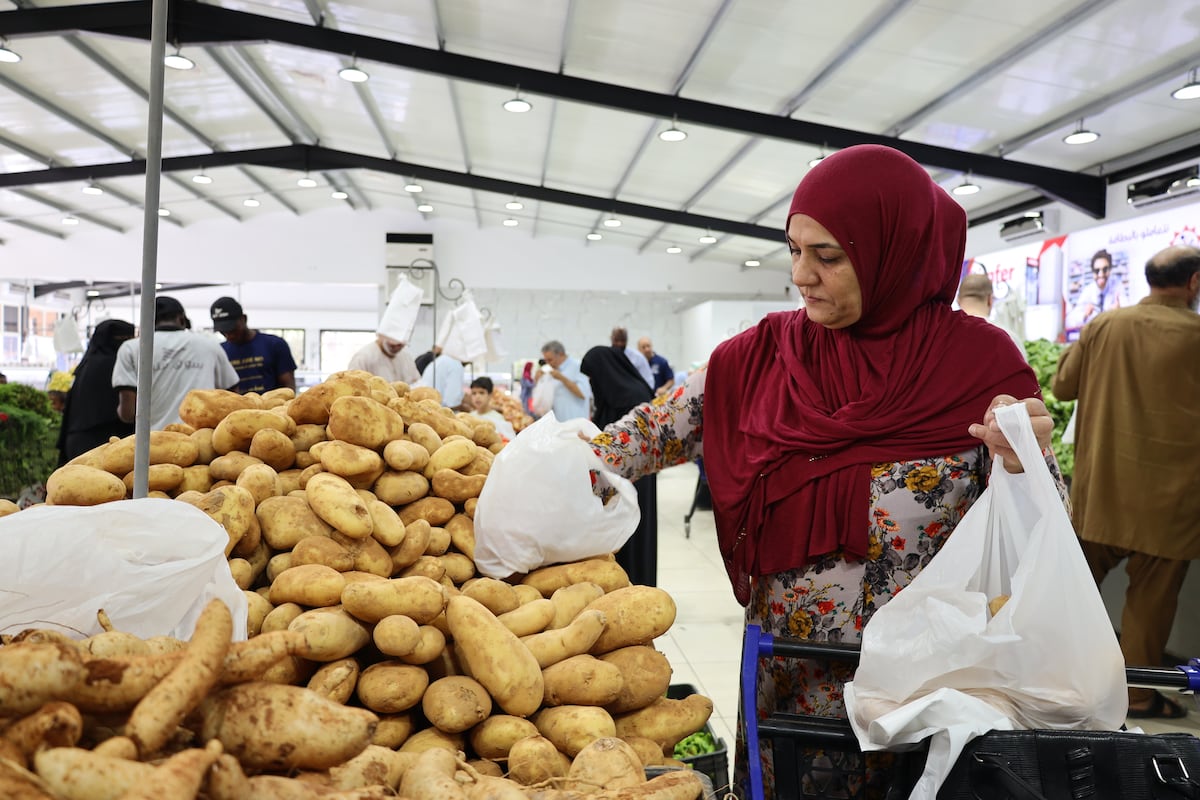Libya announces a morality police to crack down on veiling women. international

Libya, the North African country swimming in gas and oil and a major transit point to control migrant flows to Europe, is still fragmented and plagued by violence by armed groups, 13 years after the regime of Muammar Gaddafi was overthrown. On the verge of becoming a failed state, the situation could get even worse. One of its strongmen, warlord and acting interior minister, Imad Trabelsi, has announced the creation of a morality police. Overseeing the imposition of the Islamic veil on all women from the age of nine. strict interpretation of Shariat or religious laws that the ruler wishes to enforce, including a ban on Libyans traveling without company Guardian Joint presence of men and women in cafés and other public places.
Civil society activists, international human rights NGOs and the European Union have opposed the implementation of the morality police present in Iran as being contrary to the principles of non-discrimination of Libya’s constitutional declaration, the Provisional Basic Law. of the Maghreb country which was approved after the fall of Gaddafi in 2011. Trabelsi had been the head of the so-called Public Security Agency’s militia, which Amnesty International accused. Serious crimes against migrants and refugees in transit through the North African country are considered contrary to international humanitarian law.
The controversial ministers belong to the National Unity Government, which exercises power in Tripoli and the west of the country, recognized by the international community. The prime minister, wealthy businessman Abdelhamid Dbeibah, is directly supported by Turkey and Qatar. From Benghazi, Marshal Khalifa Haftar, a military figure opposed to Gaddafi who went into exile in the United States, controls eastern Libya and the main hydrocarbon reserves with the support of Egypt and the United Arab Emirates.
Measures to restore “morality and decency” announced last week by Libya’s interior minister affect women’s clothing and their relationships with men. Trabelsi has threatened unmarried couples caught caught in public with jail. They also warned that cafes and other establishments would be closed, such as hookah smoking rooms or hair salons, where “inappropriate behavior is observed, such as sitting together in one place.” “There is no room for personal freedom in Libya,” the minister warned, pushing for the reinstatement of police who specialize in clothing and textiles. Good habits. She emphasized that it is “acceptable” for a woman to dress inappropriately or not. hijab Or Islamic scarf. He also recommended that those who wanted to be treated differently leave the country.
According to Efe, from Libyan society, jurist Mohammed Abdel Salam called Trabelsi’s removal of the power to amend laws from the executive branch an “attack on individual freedom” and a violation of fundamental norms. Like most Islamic countries, Libya’s constitutional text establishes Sharia as an information principle. As Libyan lawyer Nouria Al Taher emphasizes, the constitution guarantees the right not to suffer discrimination based on religion, so rights cannot be restricted “under the pretext of confession.”
For these reasons, the Libyan NGO National Human Rights Commission has asked the Attorney General to suspend the creation of the police force. Political leader Laila Ben Jalifah, a candidate in the unsuccessful 2021 presidential elections, has accused Minister Trabelsi of trying to win over the most radical sectors in future elections by imposing restrictive measures for women. Presidential and legislative elections were scheduled for December 2021, but were ultimately postponed. Almost three years later, there is no scheduled date for the votes provided for in the Skirat agreements signed by the opposition parties in that city on the outskirts of Rabat, brokered by the international community.
Written permission from ‘parent’
Given the restrictions imposed by the Minister of the Interior, including a veto against women being able to travel abroad without written permission Guardian -whether father, husband, son or brother-, NGOs such as Human Rights Watch have condemned as “gross violations of the rights of Libyan women and girls, which have no legal basis.” Since last year, Libyan women must fill out a form at the borders to certify that they can travel abroad without male family authorization. Libya is a signatory to several international human rights treaties, such as the Protocol on Women’s Rights in Africa, which obliges member states to eliminate all forms of discrimination and restrictions on women’s freedom of movement.
The International Commission of Jurists has also questioned the creation of a police brigade with the aim of “protecting values and traditions”. The same organization reminds that Libya had already handed over responsibility for a program of “guardians of virtue” against “religious and moral deviations” to the General Authority for Islamic Affairs in 2023.
Bassam Al Kantar, Amnesty International’s researcher for the Maghreb country, says, “The interior minister’s threats represent an alarming escalation of the already suffocating repression inflicted on those who do not adhere to dominant social norms in Libya.” EU Ambassador to Libya, Nicola OrlandoAccording to Efe, Minister Trabelsi also reminded that Brussels’ association agreements with the Maghreb country are “firmly rooted in respect for universal human rights.”
(TagstoTranslate)Libya
